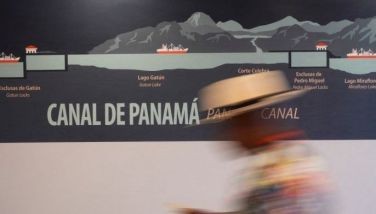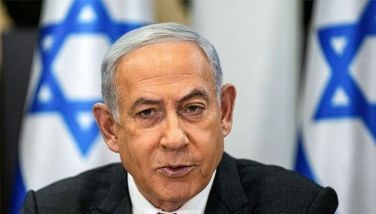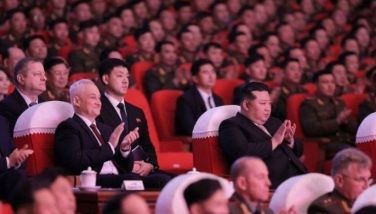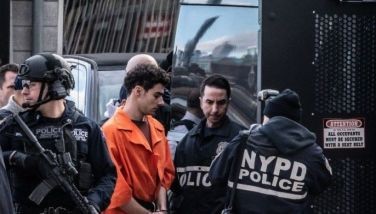Defectors play big role in North Korean rumor mill
SEOUL — Video secretly taken in North Korea shows public executions by firing squad. The country is said to begin a currency revaluation that turns disastrous. Leader Kim Jong Un is reported to have thrown South Korean leaflets containing rumors about his wife in his aides' faces.
Two of those stories are true. The third, who knows? All came from people in North Korea, through networks of defectors determined to get out information on the authoritarian, highly insular country they left behind.
Their words and images are snapped up with enthusiasm, and often credulously, by South Korean and international media desperate for news from the poorly understood country. The sources may not be particularly well informed: They could be ruling-party officials or factory workers. Or smugglers, professors or soldiers.
Generally, they are in it for the money, not a desire to force change in their homeland, according to the defectors they communicate with.
Whatever their motives, the risks they face are the same. Defectors say the firing-squad and currency stories came from sources now dead because of their work.
The North inspires fervent curiosity and global headlines thanks largely to its tight control on information, its dogged pursuit of long-range nuclear weapons and its widely condemned record on human rights.
For outsiders it can be a breeding ground for groundless rumors, as it was recently during nearly six weeks in which Kim Jong Un stayed out of the public eye. After rumors ranging from a coup to gout brought on but a cheese addiction, he emerged limping but still clearly in power.
Leading defectors' organizations say they are not responsible for many of the most sensational rumors, which could come from South Korean officials, businessmen doing business with the North or someone else. But that doesn't mean the defectors are always right, either.
In the months after the North's December 2013 execution of Jang Song Thaek — an uncle of Kim Jong Un who had been widely regarded as the country's No. 2 official — a defector's organization reported on its website that another top official, Choe Ryong Hae, had been detained for unclear reasons. Those reports, cited by many news outlets, appeared doubtful days later when state TV aired photos of Choe accompanying Kim on an inspection trip.
Kim Seong-Min, a well-known defector who heads the organization involved, Free North Korea Radio, said he now believes Choe was least investigated, if not detained. There have been varying reports about Choe's political fortunes, but on Friday, state media reported that he will soon travel to Russia as Kim Jong Un's special envoy.
Kim Seong-Min is unperturbed as long as the information helps expose North Korean wrongdoing. And he has worked to help North Koreans bolster their reports by smuggling in illegal cellphones and camcorders for them.
"There are lots of stories about North Korea, and I think all of them are good as long as they don't praise that country," Kim said in a recent interview. "I think they will help people understand the North's dictatorship."
Stories about top North Korean officials often have the murkiest sourcing.
Another defector in Kim Seong-Min's group said it was a North Korean military official who told him about Kim Jong Un's angry rant over leaflets South Korean activists sent to the North by balloons. The leaflets criticized the leader's father and grandfather and made allegations about his wife's sexual behavior before they married.
The defector said the official had not witnessed Kim Jong Un's tirade but talked to a colleague who said he did. The defector requested anonymity due to worries about safety of relatives in North Korea.
Most of the defectors' groups in Seoul specializing in sneaking news out of North Korea have no more than 10 North Korean sources. They regularly call their South Korean contacts at dawn or late at night, when North Korean security officials are less likely to be out with mobile equipment to detect cellphone signals.
Defectors' organizations say they don't tell their sources exactly who they are or how their information will be used, so the sources will more freely share information and will face less danger. The organizations usually release no details about a source except the province he or she reported from.
"They'd face espionage charges if they're arrested" and owned up to a connection with an anti-Pyongyang organization in South Korea, said Kim Heung Kwang, a North Korean defector who heads the North Korea Intellectuals Solidarity organization. "I just tell them I'm writing something and need some information."
His organization got a legitimate big scoop about the North, one of the few reports by defectors' groups to be independently confirmed: the news of the country's botched currency revaluation in 2009. South Korean officials confirmed the details days later.
Defectors say their sources often include their own relatives, friends and acquaintances. In return for information, they often get cash or gifts.
Kim Heung Kwang says he gives $50 to $100 to ordinary sources when they give him useful information, with more money for "ace" informants. He says he sent about $3,000 to both of the sources who told him about the currency reform as a special bonus. South Korea's central bank estimates North Korea's gross national income per capita last year at about 1.4 million won ($1,320).
"They definitely do it for the money," Kim Seong-Min acknowledges. He says his group gives gifts, usually electronic products, to his sources because of a cash shortage.
Son Jung-hun, a defector and human rights activist who communicates with North Koreans in border towns, said they sometimes demand up to 2 million won ($1,840) for information, but he does not pay them. He said he is trying to monitor life on the border, not publish information. He also said he doubts that his contacts have information about specific news events, or even would understand what sort of information would interest the outside world.
Ahn Kyung-su, a North Korea researcher at a Seoul-based nongovernmental organization, says he suspects that sources are mostly ordinary citizens who pick up rumors circulated in North Korean border markets. That can be useful in getting a picture of life in many North Korean communities, but much less so when it comes to high-level government decisions.
Ahn pointed out that defectors' organizations missed a big story that thousands of ordinary Pyongyang residents had to have known about: the collapse of a 23-story apartment building in the capital that North Korean state media ended up being the first to report, five days after it happened on May 13.
Defectors "were lucky to catch the currency reform," Ahn said. "By looking at the high-rise collapse, we can say that they have no truly reliable sources" in Pyongyang.
Defectors' organizations respond to criticism by saying they are not trying to be journalists, but are simply trying to expose the North's abysmal human rights conditions.
When they do produce accurate information, the sources sometimes suffer for it.
Kim Seong-Min said an army major who sent him the video clips of public executions was arrested and executed in 2008. North Korean authorities identified him after spotting his motorcycle repeatedly in the footage.
"I felt wretched. I was speechless," Kim said.
Kim Heung Kwang says one of his two sources who obtained the information about the currency reform was arrested in 2012 while returning home after conducting a mission to meet and tape a former South Korean soldier held in the country. The source, a local official, eventually died during interrogation.
"She didn't launch a revolt but only informed us about what was happening in North Korea. There was no reason to kill her," Kim Heung Kwang said. "My resolve to fight and overthrow the dictatorial regime was strengthened."
- Latest
- Trending
































